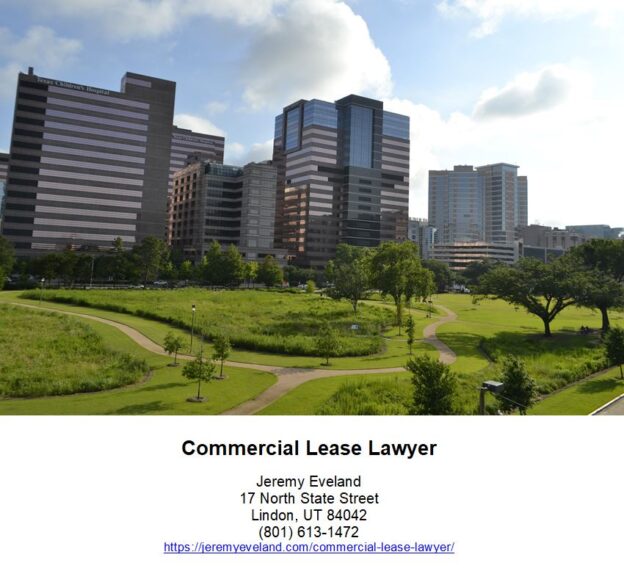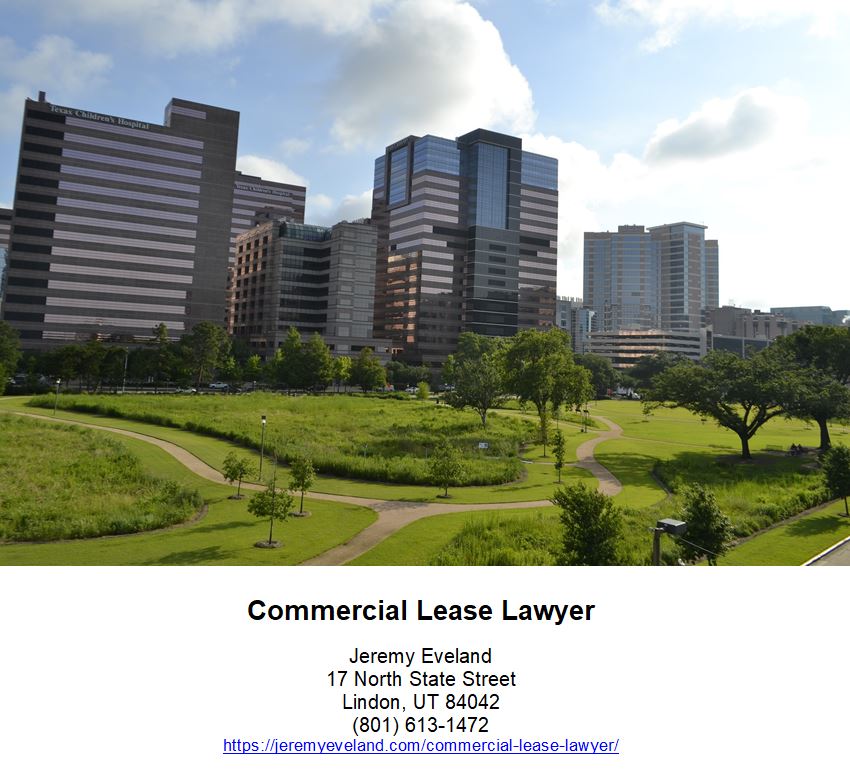Are you a business owner searching for the perfect commercial space for your company? Leasing commercial space is a crucial step in establishing your business, and understanding lease agreements is essential to protect your interests. In this article, we will provide you with a comprehensive overview of lease agreements, answering frequently asked questions and offering expert guidance. Whether you are a small startup or a high net worth individual, our business attorney specializes in helping companies like yours navigate the complexities of leasing commercial space. By providing clear and accessible information, we aim to empower you to make informed decisions and ensure the success of your business. So, let’s dive in and learn about lease agreements for commercial spaces!
Leasing Commercial Space: Learn About Lease Agreements
As a business owner, leasing commercial space is an important step in establishing or expanding your company. Understanding lease agreements is crucial to ensure a smooth and successful rental experience. In this article, we will provide a comprehensive overview of lease agreements, including the types of leases, negotiating lease terms, key provisions, length of lease terms, financial obligations, maintenance and repairs, termination and renewal, legal considerations, and frequently asked questions.
Understanding Lease Agreements
Lease agreements, also known as rental agreements or commercial leases, are legally binding contracts between a landlord and a tenant. These agreements outline the terms and conditions under which the tenant can occupy and use the commercial space.
Parties Involved in Lease Agreements
The lease agreement involves two primary parties: the landlord, who owns the property, and the tenant, who wishes to rent the property for commercial purposes. It is essential for both parties to clearly understand their rights and obligations as outlined in the lease agreement.
Purpose of Lease Agreements
The main purpose of a lease agreement is to establish the rights and responsibilities of both the landlord and tenant. It helps clarify important details such as rental payments, lease duration, maintenance responsibilities, and termination or renewal options. A well-drafted lease agreement protects the interests of both parties and helps prevent potential disputes.
Basic Components of Lease Agreements
Lease agreements typically include several key components:
- Identification: The document should clearly identify the parties involved, the leased premises, and the lease term.
- Rent: The agreement should specify the amount of rent, when it is due, and how it should be paid.
- Security Deposit: The lease should outline the conditions for the collection and return of the security deposit.
- Maintenance and Repairs: The responsibilities of both the landlord and tenant regarding maintenance and repairs should be clearly defined.
- Termination and Renewal: The agreement should address the conditions under which the lease can be terminated or renewed.
Types of Lease Agreements
When leasing commercial space, it’s important to understand the different types of lease agreements available. Each type has its own advantages and considerations, so let’s explore the various options:
Gross Lease
A gross lease is a type of lease agreement where the tenant pays a fixed amount of rent, and the landlord is responsible for all operating expenses, including taxes, insurance, and maintenance.
Net Lease
In a net lease, the tenant pays a base rent and also covers a portion of the property expenses, such as property taxes, insurance, and maintenance costs.
Percentage Lease
A percentage lease is commonly used in retail spaces, where the tenant pays a base monthly rent plus a percentage of their gross sales. This type of lease is often negotiated to benefit both the tenant and the landlord.
Triple Net Lease
In a triple net lease, the tenant is responsible for paying the base rent as well as all operating expenses, including property taxes, insurance, and maintenance costs. This type of lease places a significant financial burden on the tenant but can offer long-term stability.
Modified Gross Lease
The modified gross lease is a combination of the gross and net lease. The tenant pays a fixed rent amount, while the operating expenses are divided between the tenant and the landlord according to a predetermined formula.

Negotiating Lease Terms
Negotiating lease terms is an important aspect of the leasing process. It allows both parties to reach an agreement that suits their needs and protects their interests. Here are some key areas to consider when negotiating lease terms:
Importance of Negotiating Lease Terms
Negotiating lease terms provides an opportunity to ensure that the lease agreement meets the specific requirements of your business. It allows you to address potential concerns, clarify ambiguities, and potentially negotiate favorable terms.
Key Areas for Negotiation
During lease negotiations, it’s advisable to focus on certain key areas, such as rent amount, lease duration, renewal options, maintenance and repair responsibilities, and any specific requirements related to your business operations. Seeking legal advice can greatly assist in navigating these negotiations and ensuring your interests are protected.
Seeking Legal Advice for Lease Negotiations
Engaging a business attorney experienced in lease negotiations is highly recommended. A skilled attorney can review the lease agreement, negotiate on your behalf, and help identify any potential pitfalls or areas that may require additional attention.
Key Provisions in Lease Agreements
Lease agreements contain several important provisions that influence the tenant’s rights and obligations. Familiarize yourself with these key provisions to ensure you fully understand the terms of the agreement:
Rent Amount and Payment Terms
The lease agreement should clearly state the rent amount, payment frequency, and acceptable payment methods. It’s important to fully understand the financial commitment involved and ensure it aligns with your budget and business needs.
Security Deposit and Insurance
The agreement should outline the requirements for the security deposit, including the amount, conditions for its return, and any interest it may accrue. Additionally, it may address the need for insurance coverage, such as liability insurance, naming the landlord as an additional insured party.
Maintenance and Repairs
Determining maintenance and repair responsibilities is crucial. The lease agreement should establish who is responsible for general maintenance, repairs, and upgrades. It should also specify the procedures for reporting and addressing any necessary repairs.
Assignment and Subletting
The lease agreement should address whether the tenant is allowed to assign or sublet the leased space to another party. If permitted, there may be certain conditions or requirements that must be met.
Default and Remedies
In the unfortunate event of a lease default, the agreement should outline the consequences and available remedies for both parties. This provision can include remedies such as late fees, interest charges, or termination of the lease.
Termination and Renewal Options
Understanding the termination and renewal options is essential. The lease should clearly state when and how the lease can be terminated, as well as any renewal options available to the tenant.

Length of Lease Terms
The length of lease terms varies and depends on various factors such as business needs, location, and the landlord’s preferences. When considering the length of lease terms, it’s crucial to evaluate your operational requirements and future growth plans. Let’s explore the two common lease term options:
Short-Term Leases
Short-term leases typically span one to three years and offer flexibility for businesses with uncertain growth or changing needs. This option allows for easier relocation or renegotiation once the lease expires.
Long-Term Leases
Long-term leases usually extend beyond three years and offer stability and security for businesses with long-term growth plans. This option provides assurance of a fixed location and can result in more favorable terms.
Rent and Other Financial Obligations
Understanding the rent structure and additional costs associated with leasing commercial space is essential. Let’s explore these financial obligations in more detail:
Understanding Rent Structure
Rent structure varies depending on the type of lease and the terms negotiated. It can be a fixed monthly amount, a percentage of sales, or a combination of both. It’s crucial to carefully review the rent structure and ensure it aligns with your financial capabilities and revenue projections.
Additional Costs and Expenses
In addition to rent, tenants may be responsible for other expenses such as utilities, property taxes, insurance, and maintenance costs. These expenses should be clearly outlined in the lease agreement, allowing you to anticipate and plan for them accordingly.
Security Deposits
Security deposits are a common requirement in lease agreements and serve as a form of protection for landlords. Let’s delve into the details:
A security deposit is a refundable amount paid by the tenant to the landlord at the beginning of the lease term. It serves as security against potential damages to the leased premises or non-payment of rent. The lease agreement should clearly outline the conditions for the collection, use, and return of the security deposit.
Maintenance and Repairs
Maintenance and repairs are an essential aspect of keeping the leased premises in good condition. Let’s discuss the responsibilities of both the landlord and tenant in this regard:
Responsibilities of the Landlord and Tenant
The lease agreement should clearly define the maintenance and repair responsibilities of both the landlord and tenant. The landlord is typically responsible for major structural repairs, while the tenant is usually responsible for day-to-day maintenance and minor repairs.
Repairs and Maintenance Clauses in Lease Agreements
The lease agreement should include clauses that specify the process for reporting repairs, who is responsible for the cost of repairs, and the timeframe within which repairs should be completed. These clauses help avoid misunderstandings and ensure the leased premises are adequately maintained.

FAQs about Lease Agreements
Q: Can I negotiate the terms of a lease agreement?
A: Yes, lease agreements are often negotiable. It’s important to engage in lease negotiations to ensure the terms align with your business needs and objectives.
Q: Is it necessary to hire a lawyer for lease negotiations?
A: While not always required, hiring a lawyer experienced in lease negotiations can provide invaluable assistance in protecting your interests and ensuring a favorable outcome.
Q: What happens if one party breaches the lease agreement?
A: In case of a breach of the lease agreement, the non-breaching party may take legal action to enforce the terms of the agreement, seek damages, or terminate the lease.
Q: Can I sublet the leased space to another party?
A: Subletting is often subject to the terms and conditions of the lease agreement. It may require the landlord’s consent and adherence to specific requirements outlined in the agreement.
Q: How long should I lease commercial space for?
A: The length of lease terms depends on various factors such as business needs, growth plans, and market conditions. Short-term leases offer flexibility, while long-term leases provide stability and potential cost savings.
Lease agreements are critical legal documents that lay the foundation for a successful commercial rental experience. Familiarize yourself with the different types of leases, negotiate favorable terms, and ensure you fully understand the key provisions and financial obligations. Seeking legal advice can provide valuable guidance and protect your interests throughout the leasing process.





